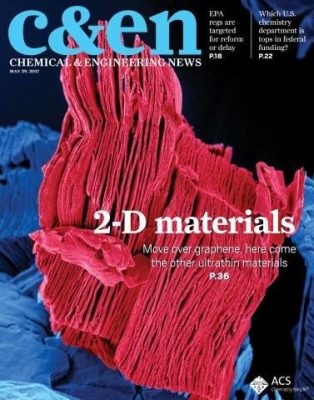Jun 1 2017
 Credit: Chemical & Engineering News (C&EN), ACS
Credit: Chemical & Engineering News (C&EN), ACS
Since its discovery in 2004, graphene, the two-dimensional, super-strong, ultra lightweight carbon film, has been called a wonder material. Of late scientists are going beyond graphene and trying to other 2D films with astonishing properties for applications in sensors, wearable electronics, and energy storage.
The cover story in Chemical & Engineering News (C&EN), the weekly newsmagazine of the American Chemical Society, reviews this growing landscape.
Mitch Jacoby, a senior correspondent at C&EN, notes that a majority of 2D materials have some features in common: They tend to be transparent, flexible, and can be tweaked more easily compared to their bulk counterparts. A few are electrical conductors, and others are semiconductors or insulators. However, there are some gray areas regarding the meaning of 2D, how many layers thick can they be, and do the materials have to be free standing.
While those questions are not completely answered, scientists have gone ahead with the making of new ultrathin films with differing properties. They principally can be grouped into five major categories: Xenes, MXenes, transition metal dichalcogenides, organic materials, and nitrides. The materials are in various stages of progress, from laboratory curiosity to demonstration devices.